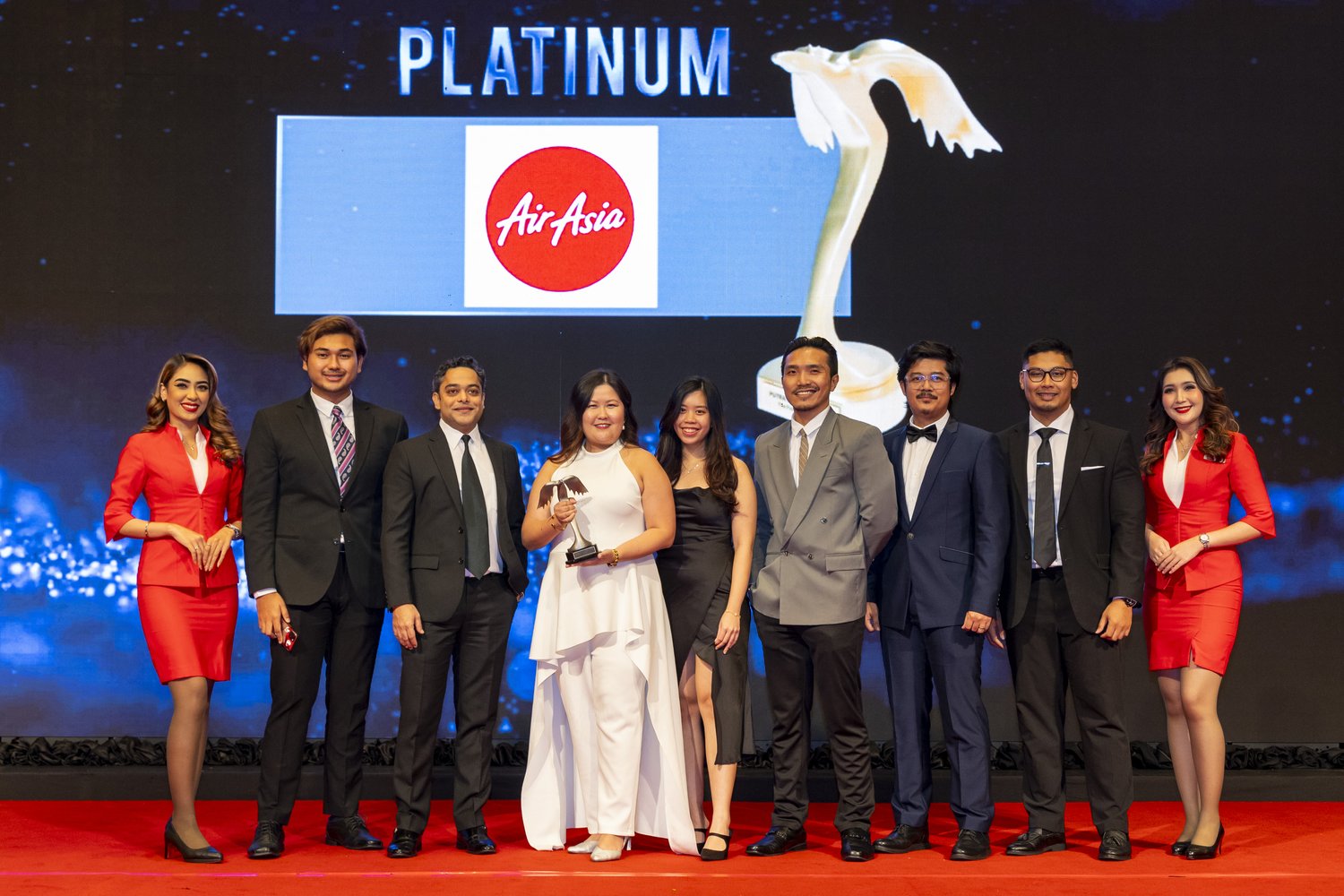Search Blog
Hit enter to search or ESC to close
Trending Now
AirAsia wins Platinum in travel category at Putra Brands Awards
- Get link
- X
- Other Apps
Touch ‘n Go Wins Super Aspiring Brand Award in the Lifestyle Category at the Shopee Super Awards 2023
- Get link
- X
- Other Apps
 |
| Khalid Alvi |
Consumer behaviours are settling into a new normal, as people everywhere learn to live with the reality of COVID-19 and as more countries reopen parts of their economies. While the FMCG industry has remained resilient during the pandemic, the business environment is changing fast with accelerated digitalisation.
To keep a pulse on both, companies need to learn how to innovate and digitally transform their business to cut through current “digital fatigue”. To do so, companies must first understand the evolving trends in the market.
Shift of value perception and buying habits
Even though markets are reopening, global consumers income has dropped. The outlook of the economy is not optimistic – hence, the choices people make on everyday spending will also be affected. Research shows that consumers are being mindful about their spending and trading down to less expensive products[2]. This means keeping their spending largely limited to essential, such as groceries and household supplies and cutting back on the more discretionary categories. However, with the rollout of vaccinations in place, the Malaysian economy is expected to strengthen between 5.5% and 6.5% in 2022[3].
Spending power aside, consumers have also changed the way they make purchases, shifting to online shopping and relying on smaller, neighbourhood grocery stores. In fact, due to the supply-chain disruptions caused by COVID-19, many consumers have experimented with different brands or shopped at a different retailers during the crisis. This shows that value, availability, and quality are drivers for consumers to make these switches. Many brands understood this and changed their marketing strategy to in order to stay relevant.
In Etika’s case, we focused our efforts on connecting with our customers via forward-thinking digital campaigns. This included championing several digital initiatives during the lockdown period, such as the first-ever concert from home in Malaysia called Konsert #WONDADiRumah, Goodday virtual moreh sessions, and augmented reality (AR) filters for Hari Raya celebrations. By keeping our community engaged, and continuously delivering great offerings during the challenge, Etika was able to maintain steady growth during this time.
Establishing strong e-commerce presence
Consumer brands have long understood the need to adapt to digital shopping behaviours. Yet, the recent disruptions have triggered a greater sense of urgency. A study by McKinsey showed that most product categories have seen more than 10 percent growth in their online customer base during the pandemic[4], and many consumers are planning to continue shopping online even when brick-and-mortar stores reopen. This trend is consistent across the globe and the share of wallet spent online is expected to increase post pandemic.
Etika has capitalised on this trend with our flagship stores on Shopee and Lazada. In 2021, for Chinese New Year Etika had organised a giveaway initiative where consumers were entitled to receive free drinks and cash vouchers with their purchase online. This was also coupled with the launch of a special Chinese New Year below.
The progress of the e-commerce space also saw the birth of a new demographic group[5] – an older, less affluent, more rural audience. Because of the sudden accelerated adoption of e-commerce, brands will have to win these new of shoppers through value proposition, a more user-friendly experience and invest in moments that surprise and delight even post transaction. That said, the biggest spenders online remains to be high-income earners and millennials, both whom are leading the way in shifting spend online across both essential and nonessential items.
Greener products takes the spotlight
Another emerging trend accelerated by COVID-19 is the focus on sustainability and planetary change, with a first wave of dominant interest set to splash over the next 18 months and drive sentiments mainstream by 2022. The constant development of consumer awareness regarding sustainable development has spread to food markets. For the FMCG industry, this could provide an opportunity for companies to enhance their business resilience through improving sustainability practices in their value chain.
Joining this effort, Etika has also renewed its sustainability efforts around key pillars of reducing carbon emission, sourcing sustainable ingredients, innovation in packaging and waste reduction. For example, we have a strong commitment towards sustainable sourcing by obtaining raw ingredients such as sugar and palm from ethical producers. We have also steadily been working to innovate our packaging and introduce materials that are eco-friendly and recyclable by using 100% FSC certified paper for operational and packaging needs.This means that the paper products being used are sourced in an environmentally friendly manner, socially responsible and economically viable. Other ongoing efforts include collaborating with Malaysia Plastic Pact to incorporate more recyclable materials in our packaging to reduce plastic waste.
Increased Demand for Healthier Alternatives
Consumers today are more concious about their diet and are making healthier choices when it comes to their food and drinks. The pandemic has further reinforced the importance of good health and this has increased the demands for healthier alternatives. For instance, Ai Palette found that healthier snacks options such as nuts and seeds grew in popularity in Philippines while oat-based snacks and dark chocolate gained popularity in Singapore[6].
Across the FMCG industry, health and wellness initiatives are becoming increasingly important. Some brands are actively working on product reformulation and sugar-reduction programmes along with introducing healthier product alternative for the consumers. As more and more consumers are looking for healthier alternative this is an opportunity for companies to explore new products and introduce healthier products in the market.
Businesses that can react to the evolving demands and needs with innovative approaches will create resonance with consumers which in turn, will them place them as leaders in the imdustry. As one of Malaysia’s leading halal beverage manufacturers, Etika is truly excited to take the key learnings acquired from this period and reinvent our tactics to continue delivering excellent value to our existing and future partners, stakeholders, and customers.
Attributed to Khalid Alvi, Chief Executive Officer of Etika, Malaysia, Singapore and Brunei
[1] https://www.mdpi.com/2071-1050/12/12/4958/pdf
[2]https://www.mckinsey.com/~/media/McKinsey/Industries/Retail/Our%20Insights/Perspectives%20on%20retail%20and%20consumer%20goods%20Number%208/Perspectives-on-Retail-and-Consumer-Goods_Issue-8.pdf
[3] https://www.thestar.com.my/business/business-news/2021/10/29/economic-outlook-2022-gdp-to-expand-55-65
[4]https://www.mckinsey.com/~/media/McKinsey/Industries/Retail/Our%20Insights/Perspectives%20on%20retail%20and%20consumer%20goods%20Number%208/Perspectives-on-Retail-and-Consumer-Goods_Issue-8.pdf
[5] https://www.warc.com/newsandopinion/opinion/how-fmcg-brands-can-respond-to-change-after-covid-19/3682
[6] https://www.foodnavigator-asia.com/Article/2020/07/02/From-convenience-to-conscious-Covid-19-pandemic-leads-to-shift-in-snacking-priorities-experts
You May Also Like
Affordable, Simple, and Accessible: DearTime Launches as Malaysia’s First Life Insurer in the BNM Sandbox
- Get link
- X
- Other Apps
Onboarding Suppliers to Accelerate Responsible Supply Chain Management
- Get link
- X
- Other Apps
LG’S New 32HR734S 4K Surgical Monitor with Mini LED Technology Delivers Outstanding Image Quality
- Get link
- X
- Other Apps
HONOR Launches New Tablets, HONOR Pad X8a Available in LTE and Kids Edition Starting at RM699
- Get link
- X
- Other Apps










